#anyway i hope you enjoy this has been collecting dust in my ipad
Explore tagged Tumblr posts
Text
⚠️TMA S4-5 SPOILERS ⚠️
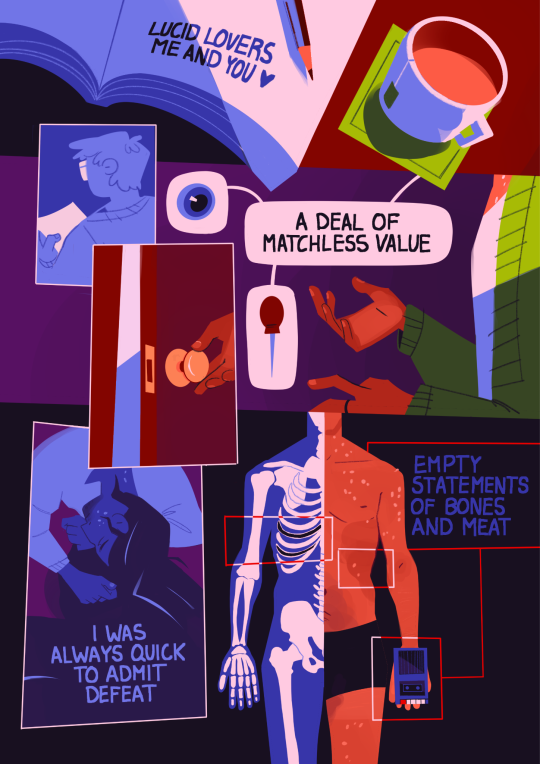
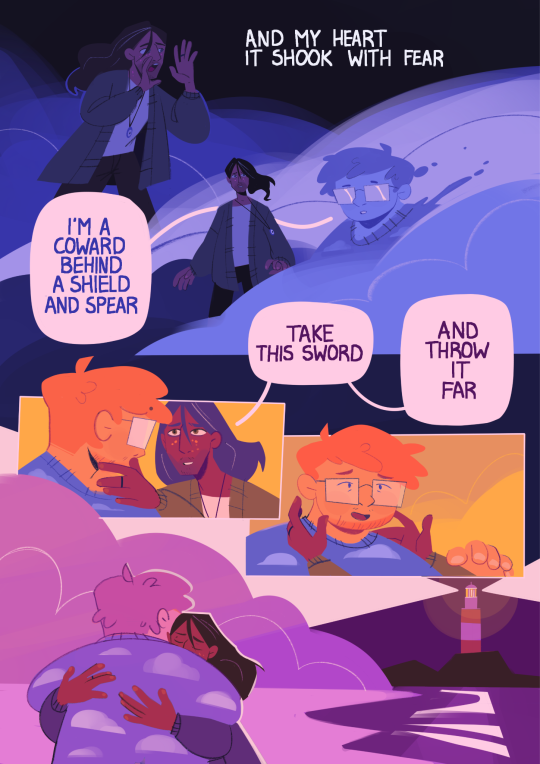
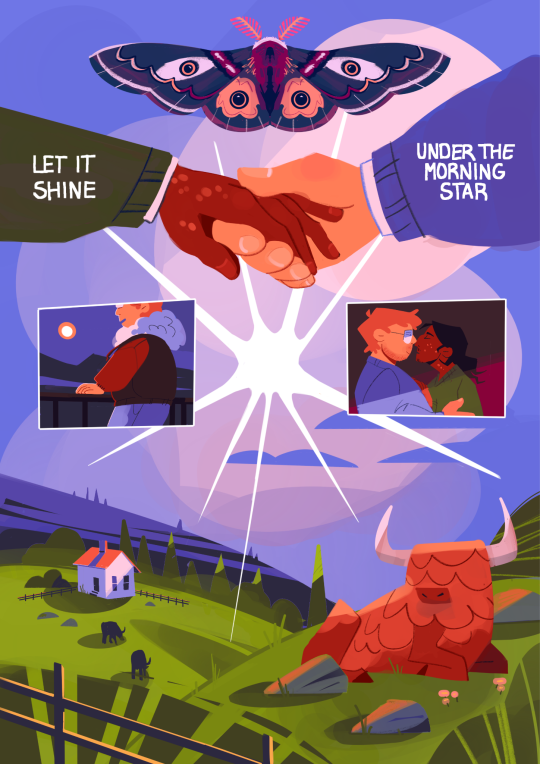
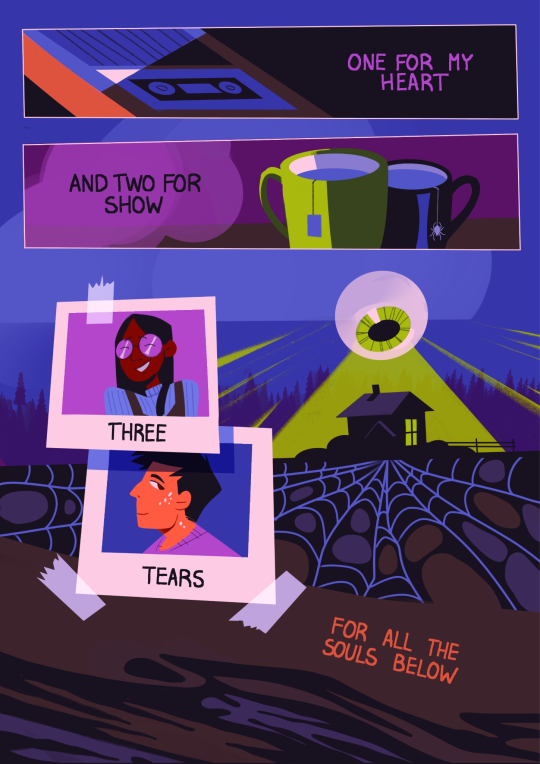
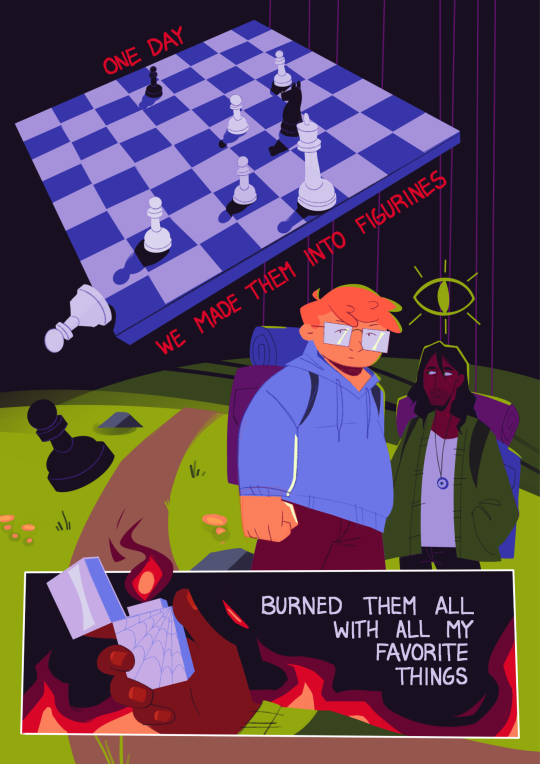

One way or another. Together.
#artists on tumblr#fanart#digital art#the magnus archives#jonmartin#the magnus archive fanart#martin blackwood#jonathan sims#this comic is one year old this week#and i have not stopped thinking about them yet#magnus archives spoilers#btw#shakes you. jonmartin will forever be proof of loves existance#anyway i hope you enjoy this has been collecting dust in my ipad
3K notes
·
View notes
Text
Book Notes:
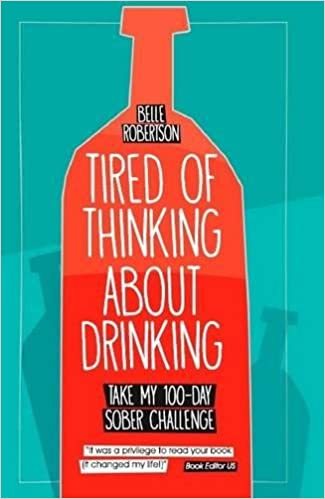
This one is one of the better quit lit books I’ve read - Belle writes with blunt honesty, and I love the way she envisions the alcoholic voice in her head as a big bad wolf rather than a wine witch.
Below are the parts that were most helpful for me...
I thought, I can’t start drinking now, there isn’t enough. Not enough for what? To fade out. To be numb. Because despite what I may have said, I never wanted one glass of wine with dinner. I wanted three glasses. What’s the point in one glass? And despite what I may have said, I never drank because I liked the taste. [...] I drank to get fuzzy. I wanted to be slightly numb, to take the edge off. I spent a lot of time taking the edge off and then trying to maintain the edge taken off, but I usually ran into problems of sobering up too quickly, or drinking too much. There was no magic formula for edge-off-ness. I tried to find it. I tried having beer before wine, I tried eating first, I tried drinking on an empty stomach. There may have been a four-minute window of edge-off-ness and then I spent the rest of the night trying to find the four-minute window again.
I never want to do this again. I never want to wake up in the middle of the night both wishing I was dead and hoping I’m not dying. Let me not vomit, please, and I promise I will cut back on the drinking. I never want to feel this bad, feel so hopeless, alone, scared, dark. I am definitely drinking too much. I should face that. I should stop drinking for a week, take a break. I’ll start tomorrow. After the work party. After vacation. Next week. After the birthday. The first of the month. On a Monday. I promise.
I had tried to stop drinking plenty of times on my own, but never managed to quit for more than a couple of days. Usually I’d declare my sobriety in the morning and then open a bottle of wine by 6 p.m. that same night. Then I’d quit again the next morning. No wine for one day. For two days. Then the voice would start. Is it time yet? You can drink now. Celebrate sobriety with a glass or two. You’ve done well. You are going to break this non-drinking stretch anyway, so you might as well drink now. Drink tonight and quit later. What about now. Is it time to drink yet? Fuck it, I’m going to drink, this is ridiculous. I’ve already quit for a week. Let’s celebrate sobriety with some alcohol.
If alcohol was in the house, it spoke to me, then I drank it. Even if I didn’t really enjoy it. I was drinking because it was the thing I did. No enjoyment. No taste. No feeling except for exhaustion. Like a hammer banging on my head. Did you ever try buying a case of wine, thinking that if it was around all the time you’d feel less compulsive about it, and drink less? Ha. Really. Who was I kidding? With a case of wine in the house, I drank more. Of course I did. We never had a wine collection or a wine rack or a wine cellar or a liquor cabinet either. Alcohol didn’t last long enough to be collected or displayed or shared.]
I had lots of drinking rules and guidelines for myself, and over time, bit by bit, I broke all of my rules. I’m only going to drink on special occasions or when socializing. Only on weekends.” But of course, you and I both know that only drinking on weekends is tricky. Because what about Sunday night? Is Sunday part of the weekend? What about Thursday? Maybe the weekend is four days long. Maybe it is, in fact, most of the week. Controlled drinking is not very successful—you know this already because you’ve tried it. If we have to control our drinking, it means that our natural, default tendency is to have one, and then another, and then another. Any plan we make is very difficult, if not impossible, to adhere to. You tried moderation. You did. You maybe didn’t call it moderation. You tried making rules for yourself. When you realized that you were drinking more than you wanted to, before you ever saw this book, you did things like alternating every second glass with water, or switching from hard stuff to beer, or trying to skip days. You tried to drink only on weekends, or only have one, or only . . . or only . . . or only.
Normal drinkers measure their alcohol consumption like I measure my corn on the cob consumption—which is to say, not at all. Just like I have days without corn, normal drinkers have plenty of days without alcohol but they’re not keeping track. I don’t pay attention to whether you are getting more corn than me, and a normal drinker fills up glasses around her without worrying about who’s getting how much. And yes, it’s true that corn on the cob is my favourite of all summer things to eat, but I have never planned days around when I can eat it. I have never gone out at 11 p.m. to get more corn. I’ve never worried about running out of corn.
A ‘bottom’ in the sober world describes the point where you quit drinking. If you have a ‘high bottom’ then you quit when your problems were smaller. Poor concentration, missed deadlines, an inability to take advantage of new opportunities, procrastination, crappy sleep, many days of feeling ill. A ‘low bottom’ is where the micro problems have grown into larger holes, and might include health, relationship, money, or legal issues. My high bottom looks like this: drink with dinner, and after, plan to drink less, continue to drink the same amount, try to quit for a month and manage nine days, start again, not keep my promises to myself. Wonder what the hell is wrong with me. Suffer with crappy sleep, extra pounds, wasted money.
If alcohol is an elevator that only goes down, the goal is to step off, not to ride down any more. Stop drinking now. Start feeling better now. I stepped off early. But I’m not naive. I know where that elevator was going. If I stopped ‘before there was a problem’ then I was fucking lucky, plain and simple. Because even stopping where I did, it was hard to do. Really hard.
The “Drink Now” voice, which I call Wolfie, will say anything to get us to drink. Nothing is off-limits. Wolfie hits below the belt. Wolfie talks smack. Wolfie with a megaphone said to me: You’ve had a long, crazy day. Have a drink. You’ll just have one. It will take the edge off. You have blown this whole thing out of proportion. You need to cut back, not quit. A hundred fucking days? You’ll never make it anyway.
I knew I had a very loud Wolfie “Drink Now” voice in my head that insisted that a glass of wine with dinner was normal. I also knew that there was another very quiet, very tiny mouse-like voice, that said: You have to stop. You know what this internal conflict is like.
I felt moderately stable until something happened, like if I got frustrated, or mad, or sad, or bored, or if something good happened and I had to celebrate. I had completely maladaptive coping strategies. I didn’t have the skills to try anything else to feel better because—duh—I’d been using wine as my only coping mechanism. I’d overused wine as a feel-better tool for so long that I literally couldn’t remember one single thing I could do instead to ease my mood.
Booze isn’t a solution to a problem. It’s a very temporary pause button (manhole cover) with horrendous consequences. It’d be like turning to heroin. It isn’t the right solution for the problem. It gets between me and my life, between me and you, between me and serving, between me and fun. It affects my weight, my sleep, my enthusiasm. It blunts, fills, numbs, fills time, expands into the space allowed. Adds nothing, feels bad, sad, argumentative, irritated. Isn’t the real me. My life has so much MORE good stuff in it when the wine is gone. There’s nothing to escape from, it isn’t bad here, there’s joy and beauty and ease here. Don’t need to ‘go’ anywhere else.
The voice that is YOU, when you’re 50 days sober, says “I know sometimes I feel like drinking but I’m not going to because I don’t want to have a new Day 1. I’ve done enough drinking in my past. I know that Day 1 is rotten.” The voice that is YOU says: “I want something different and better and I don’t know what that is yet, but I know I want to try this sober thing.” We end up in a place where even if bad shit happens, we do NOT think about drinking.
Picture booze like a Big Wolf With Black Eyes, he represents the voice in your head. Now you have to very calmly starve the wolf. Or better yet, you have to dehydrate him by not giving him anything to drink. At first he’ll be mad at you. “Where’s my drink?” You’ll say: I have all this free time now. I can’t talk to you, Wolfie. I’m running, baking, singing, reading, cleaning, spending time with my kids. I’m paying my taxes, cleaning off my desk, enjoying the weather. The wolf will taunt you. “Everyone else is drinking, why can’t you?” You’ll say: Sorry, Wolfie, can’t hear you. I’m too busy cranking up the volume on my new iPad that I bought with all the money I’ve saved.” The wolf will nearly be dehydrated. He’ll try a few more last-chance, desperate attempts. “You’re broken,” he’ll snarl. “You bitch, you can’t be fixed, you’ll always be a fuck-up, you suck at this, you might as well quit now.” And you’ll say: You want to fight? I’ll win. I’ve got so much more energy now that I’m sleeping through the night. I can outrun you Wolfie. I’m light on my feet now. I’ve got so much more spunk, clearer thinking. I’m planning to take over the world, Wolfie, me and my clear-headed genius. What is that? Sorry I can’t quite hear you. Your voice is so quiet, Wolfie. Are you nearly dehydrated? You’re going to dry up and turn to dust. Puts palm of hand up to lips and blows across the surface. Dust disperses, Wolfie is specks of grey in the air. And then gone.
Being sober is a relief. Quitting drinking is like putting down a backpack of rocks that you’ve been carrying around for a long time. It’s like a deep breath that fills your lungs. Being sober is feeling proud of yourself. Being sober is easier than drinking. Too much of our brain space is used trying to manage alcohol consumption. The “Drink Now” voice is exhausting. All of that time we spend planning to drink—thinking about drinking, wondering how much alcohol there is, trying to figure out how we’re going to get out of that work obligation because we’re hungover—all of that can stop. You have been drowning out who you really are. Literally. Banging yourself on the head with a bottle or two of wine. That’s not you. The real you is in there. Drinking is a way of hiding from who you really are. I can honestly say that being a non-drinker is unicorns and parades compared to drinking.
There is a point in each day when you will most feel like drinking. I call this the witching hours. Typically it’s around dinner time; for me it was 6:00 p.m. to 8:30 p.m. If you were to plot the duration of the witching hours on a graph, the period of time gets predictably shorter and less intense each day. Having a replacement drink is a good idea. Your brain is used to having something to drink at this time of day, so you can plan a lovely replacement drink. I have found that bitter drinks deal with cravings better than sweet drinks.
We are so used to using alcohol as our only treat, that we need to learn new treats. You can have bubble bath, trashy magazines, flowers, oven mitts, bad TV from Netflix, time alone, cheap earrings, or savoury pancakes. Perhaps you’ll plan to have steak every Friday for the first six weeks. And if you don’t eat steak, then substitute salmon or sushi or marinated tofu in that category. You spent money drinking, so you can invest some of those Wolfie dollars to support your sobriety. Here are some examples of things I’ve treated myself to: fuzzy blankets, silver jewelry, deluxe candles, essential oils, chocolate croissants, lovely beads, thrift shopping, craft supplies, gourmet ground coffee, a gorgeous teacup, a bouquet of flowers, a potted basil plant. The largest was a countertop dishwasher. The trick is to either find something that you want but don’t need, or to splurge on a more deluxe version of something you were going to buy anyway. Like shampoo or lipstick. I have always struggled with confidence and my inner critic is a real bitch. The concept of self-care is relatively new to me and these gifts remind me to treat myself kindly.
One of the reasons we drink is in search of an ‘off’ switch: to quiet our brains, to escape responsibilities, to have ‘me’ time. If there are coping strategies that are adaptive (make things better) versus maladaptive (make things worse), then drinking is maladaptive. While it may be an off-switch, it creates many other problems at the same time.
We are not taught, explicitly, how to deal with uncomfortable feelings, or how to self-soothe. So we reach for available tools, however malformed. Did your parents ever sit you down and have a conversation with you about what you can do if you feel overwhelmed, exhausted, irritated, freaked out, lonely, or depressed? Did they give you strategies and tools to help you with Changing the Channel in Your Head? No. Mine neither. Did they model for you how they dealt with disappointment, their feelings of not fitting in, or how they coped with the occasional overwhelming sense of dread? If they did model for you, was it with something other than cigarettes, alcohol, drugs, or a bucket of Kentucky Fried Chicken? Did your parents have ‘self-care’ time where they made it clear that they needed to recharge batteries, to unwind. Did they lock themselves in the tub with big mounds of lavender bubble bath and candles? Did your father go for a run when he was feeling stressed, or to delineate the mark between ‘work’ and ‘home’ and did he tell you he was doing this, explicitly, so that you could learn to do the same? No?
in your first months sober, you will get a crash course in adaptive self-care strategies, whether you want it or not. One of the most important things you will do is learn to strategically avoid ‘overwhelm’—I use this word as a noun, it’s a thing on the horizon, like fog. Your life is like a video game. You can see potential bombs, things advancing, that could blow up and throw you off course. Your job is to navigate them. You don’t walk right into a bomb and hope for the best. You don’t test yourself by repeatedly doing difficult or stressful things. Instead, you ask someone to carpool, you decline social activities, and you simplify meals. Your job is to reduce overwhelm. All around you, there are lists of things to do and when you first quit drinking you are going to take it easy. When you first quit drinking, you are going to remember that being overwhelmed is our number one trigger. You will instead do less. Learn to be slothful. Embrace the art of underachieving.
Here are my top three tools for overwhelm: exercise, tub, and bed. I probably use exercise four times a week, specifically to help with my mood. I’m in the tub anytime I’m feeling antsy, or as my reward at the end of a day of catering. And as far as sleep is concerned, I have been known to go to bed at 7:30 p.m. in early sobriety, because I had no other way of dealing with life. I knew I didn’t want to drink, and I had no idea what else to do except ‘hide’.
When we are drinking, we use alcohol to fix everything—or so we think—and we don’t develop any other self-soothing, comforting, or change-the-channel tools. Turns out—who knew—there are at least 578 other ways to shift how you feel. There are things you’ve done before, perhaps by accident, things that once you remember them, and try them, you think “OK, good, I feel better.” Like when you change the sheets on the bed you feel better. And when you have a nap you feel better. And when you snuggle on the couch with a fluffy blanket and braid your cats’ tails together you feel better. Especially if you add hot chocolate. A change of location works. If you’re at home, go out. If you’re out, go home :) If you’re alone, get with some people. If you’re overwhelmed in a group, hide in the bathroom and read sober blogs on your phone. Yes, really.
I made a list of the ways to change my state. It had 30+ things on it. They included: listen to loud music, play guitar, sing, talk on the phone, write a letter longhand, take a bath with candles, light candles anywhere in the house, clean my desk, clean anything, go for a run, make tea, plan meals, test a recipe, read a magazine, brainstorm with clients, design a new logo, read light fiction, read self-help, make a puzzle, go for a walk, take pictures, go swimming, watch a good movie, go to a concert, go to see a movie at the theatre with popcorn, listen to podcasts, do volunteer work, find an audience and do some kind of public speaking, write in my journal, play cards, explore a new part of the city, go to the art gallery, the museum, write a restaurant review.
If you’re an introvert, or if you’re a non-joiner like I am, then asking for any kind of support or encouragement seems hard. But here’s the truth. The simple act of reaching out might make you feel weak, but it’s actually a sign of strength.
When Wolfie says that being sober sucks and that it’s too much to give up, you can remind him that you are also giving up the following: • feeling like death in the morning • waking at 3 a.m. with guilt and dread and horror • vomiting • spending dumb money (like money spent in bars, expensive bottles of wine in restaurants, buying rounds for people, impulse shopping online) • emailing and texting random people • hooking up with random people • falling down • hiding bottles • arguing with your partner • alternating stores so they don’t get to know you • cringing when it’s time to take out the recycling.
And here are a few of the things that you can focus on instead, the things you GET by being sober: • you sleep through the night • your skin looks great • your health improves • your marriage improves • your kids talk to you again • your family will now take your calls after 6 p.m. • you can drive the car in the evening • you have the beginnings of a hobby • you can read a book and remember it • you can watch a movie and stay awake for it • you can actually cook the food in your fridge instead of eating popcorn for dinner • you lift your head, look around, and feel like things are ‘possible’ • you feel proud of yourself.
Keep a short journal of your own, particularly for the first 60 days. By keeping a daily record you can see the grass grow. And you can more clearly identify that some periods of time are shitty but that they don’t last, and they’re followed swiftly by easier days. You can start your journal with this entry. Start with a list of 10 things: 1. The way I drink has affected my ___ 2. And my ___ 3. And my ___ 4. It’s caused problems with ___ 5. And ___ 6. It’s made me feel ___ especially when ___ 7. I nearly had a disaster when ___ 8. And this was just about a disaster too: ___ 9. I’m tired of waking up feeling like ___ 10. People who will be relieved that I am sober: ___
It’s entirely possible to have sober fun, of course it is :) Those of us who are longer-term sober have plenty of fun. There’s nothing better than waking up without a hangover, without regret, without shame. There’s nothing better than being on a beach and being sober and watching a sunset. There’s nothing better than coming home at the end of a long night, or dancing until 4 a.m., knowing that you had a fabulous time, that you rocked it all without a drink. To think that you need alcohol to have fun is Wolfie talking. You were fun when you were 12 years old. You’ve had hilarious pee-your-pants laughing with your best friend and it didn’t involve alcohol. Wolfie tells you that kind of shit to encourage you to drink, but it’s not true. Can you dance sober? Turns out you can. Who knew.
If you are in prelapse, then you will want to do things right away that might make you feel better. Even if you have to try things mechanically, one after the other. You’ll say “I got enough sleep that didn’t work, had a nap that didn’t work, went for a run that didn’t work.” Then you go on to the next thing. You have a treat, that didn’t work. You watch bad TV, that didn’t work. You read blogs, write in your journal, comment on blogs, listen to audios, email somebody, reach out, go to a meeting, listen to something inspirational—you go through the toolkit. And here’s something that will seem obvious when I say it: If the first tool doesn’t work, it does not mean that the whole thing is hopeless. It means that you go on to the next tool.
You are more likely to be successful if you: • Reach out for support. It’s hard. Do it anyway. • Sign up to have a sober penpal. Email your penpal every day. • Share real stuff, don’t exaggerate, and don’t leave things out. Be truly honest with at least one person in your life about your booze stuff. • Reach out instead of drink, cry instead of drink, walk instead, email me frustrated instead (the people who don’t email are more likely to get alone in their head with Wolfie who will always say that drinking is a good idea). • Remember that successful treaters do MUCH better. It’s shocking how much better they do. Once you figure out the self-care treat thing, you’ll find this whole sober experience to be much easier. If you resist treats, don’t understand them, don’t think they apply to you, then I worry about you (see below). • Get enough support, load on a lot to begin and then ease off as time goes by and you feel stable. Be cautious. Don’t fuck with sober momentum. • Tell on Wolfie—share when you’re having weird thoughts, externalize the voice, tell on your inner addict. • Read stuff that supports you and turn away from what doesn’t. You don’t read about moderation, you don’t read blogs that get under your skin, you turn away from people who repeatedly relapse if that makes you feel wobbly. • Protect your sobriety, avoid situations and people that may trigger you. Your sobriety is a like a little chick that can easily get squished in traffic.
Write in a journal every day for your first 30 days sober, no matter what (can be private, or anonymous on a blog, doesn’t matter).
Read sober blogs at least one hour a day, every day.
Rethink your evening routine
Have a bath/shower every evening, early, so that it sets the mood for the rest of the night.
Plan and purchase replacement drinks that you can have during the witching hours. Bitter is better.
Schedule something to coincide with Wolfie time
Get yourself daily treats for the first two weeks, and then something every two days thereafter.
Get as much sleep as humanly possible. Take naps. You will need a lot more sleep than you anticipate.
Go to bed every time you feel crappy, when you feel you’re about to drink, or when you are agitated and need a time-out. Bed is a good, safe place to hide.
Sober first. If you push yourself too hard, and load on too many goals at once, Wolfie comes in with “this is all too hard.”
Pretend, for a while, that you’re sick, that you have the flu, that you need to take good care of you—very, very good care.
Try to do some kind of physical exercise every day, even if it’s only for 10 minutes
Rent/stream new TV shows and movies as your sober treats, that you can watch only if sober.
Give up any ideas of a clean and tidy house for now.
Please know that crying is totally normal, required, and necessary.
Take pictures of things that you’re grateful for now that you’re sober. It can be simple things like a good cup of coffee, the view from the window, your girls playing dress-up. You can do a sober photo project.
Avoid overwhelm as much as possible. In fact, strive for “underwhelm” and engage in some truly slothful behaviours. It’s OK to be in your jammies watching a show on your iPad. You’re sober. Sometimes bed-snuggle time is required.
Pet your cat, dog, or horse. You know already that this makes you feel better.
Listen to sober audio and podcasts. Find specific topics or episodes that resonate with you. Listen to them on repeat.
Accept that sober motivation is like deodorant: it needs to be reapplied every day. Stop feeling like you should be able to do this if you ‘try harder’. You will need to ‘try different’.
Ask for help.
Accept help.
Ask for and listen to advice from other successfully sober people.
See irritating people as people with struggles. We were irritating too. We were dealing with stuff that other people couldn’t see. Drop your shoulders and see that woman as lonely, or hurt, or needy. She’s not trying intentionally to make you crazy.
Share the nonsensical things that Wolfie tells you—share with another sober person who will truly ‘get it’. Be shocked and then amused that we all hear virtually the same thing.
Find some small activities to do in the evenings to help occupy the empty time. It doesn’t take long for regular life to flow back into the spaces that alcohol consumed, but to begin it’s helpful to have some projects. Decluttering is helpful. It’s cleaning up, from the outside in.
Have something you can wear, some special piece of jewelry, that reminds you that you’re sober and that you’re special. Rub the jewelry. Bestow it with super powers.
Find ONE person that you can be 100% honest with about your drinking, about your thinking, your worries, your struggles, your excitement, and your joy. That might be a counsellor, sober mentor, a coach, sponsor, or a sober friend. You should have at least ONE person who truly gets what it’s like to be you.
Accept that the first time you do everything, it’s going to be a little weird.
When you are facing a shitty hard thing, or a weirdly tempting event (like a staff party), then plan a sober treat you’ll have AFTER you’re home again, safe and sober. Don’t skip this step. Wolfie likes to come in with “where’s my reward” after we do something hard. So you want to remember to have these treats pre-planned.
Be pretty darn proud of yourself.
You have to celebrate your successes. No one is coming in to do this for you. It’s you. It’s up to you.
Walk out of your office, cross the street, have a cry, get a take-out coffee and a pastry, call it a sober treat, email me that you’re doing OK, and then go back to work. Even if you remove yourself ‘briefly’ from whatever situation is making you feel crazy, you can give yourself some time to settle and feel better.
Find tools that work and keep using them. Don’t drift from your sober supports. You know how people stop taking their blood pressure medication as soon as they feel better? Whatever you’re doing is working, so keep doing it.
Know that Wolfie wants to get us alone in our head, where he can say: “Drinking seems like a good idea. You can probably have one.” Resist this kind of wolfie-solo-nonsense-manipulation by reaching out, telling on your inner addict. Wolfie is a bully and hates it when we share.
What you’re doing is for YOU. Your partner is on their own road. You can do what’s best for you.
#sober#alcohol#alcoholism#alcohol use disorder#recovery#healing#growth#self care#self improvement#motivation
11 notes
·
View notes